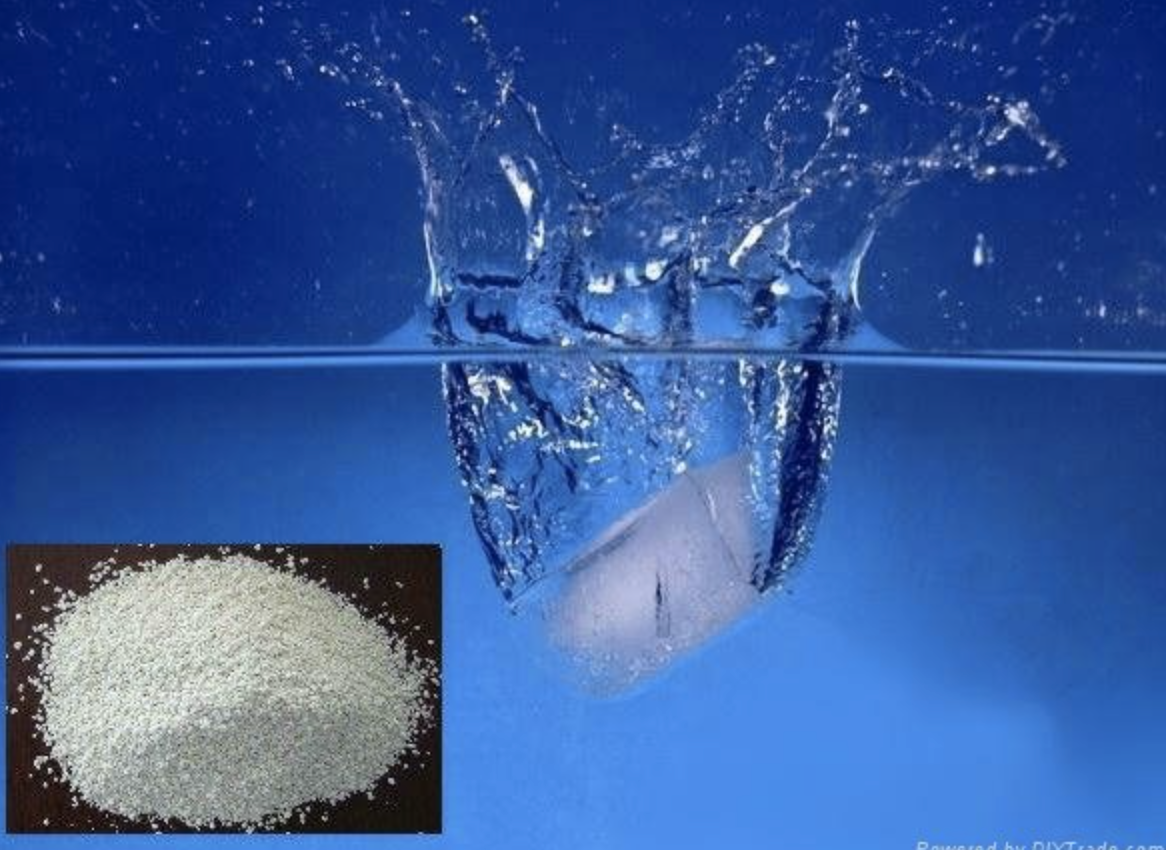A chemical used to treat water, calcium hypochlorite is a white powder. It is extensively utilized in the water treatment sector because it is highly effective in eliminating bacteria and other germs from water. Since access to clean water is so difficult to come by in underdeveloped nations, calcium hypochlorite is thought to be a cost-effective alternative for water disinfection.
Chemical properties of Calcium Hypochlorite
The inorganic compound Ca(ClO)2 is known as calcium hypochlorite. It is a powder that is white or off-white and soluble in water. Strong oxidizer calcium hypochlorite produces chlorine gas when it comes into contact with water. Hypochlorous acid (HClO), a potent disinfectant that eliminates bacteria and other germs, is created when chlorine gas combines with water.
Calcium hypochlorite has a molecular weight of 142.98 g/mol and a density of 2.35 g/cm3. The melting and boiling points of calcium hypochlorite are 100 °C and 175 °C, respectively. Under normal circumstances, it is stable, but when exposed to heat, light, or moisture, it quickly decomposes. Store calcium hypochlorite away from heat and light sources in a cold, dry area.

Calcium hypochlorite's uses in the purification of water
Because it effectively kills bacteria and other pathogens in water, calcium hypochlorite is widely employed in the water treatment sector. It is employed in the treatment of both wastewater and drinking water. The following section discusses some of the most important uses of calcium hypochlorite in the treatment of water.
Drinking water purification: Calcium hypochlorite is used all over the world to purify water for consumption. It is very good in eliminating bacteria, viruses, and other germs that can lead to illnesses that are transmitted by water. Calcium hypochlorite is used to disinfect water at the point of use in a lot of poor nations where access to clean water is a significant difficulty. A little amount of Calcium hypochlorite is often added to a container of water, and then the water is allowed to rest for a certain length of time before being used. This is a crucial tactic to increase access to clean water in impoverished nations and is known as home water treatment.
Calcium hypochlorite is frequently used to sterilize swimming pool water. When added to water in the form of granules or tablets, it immediately dissolves and releases hypochlorous acid, which kills bacteria and other microbes. Due to its low cost, high efficacy, and simplicity of application, calcium hypochlorite is recommended over other pool disinfectants.
Wastewater treatment also makes use of calcium hypochlorite. Prior to being discharged into the environment, it is added to wastewater to disinfect it. This is necessary to stop the spread of illnesses that are transmitted by water and to safeguard the environment from pollution. In wastewater treatment facilities, calcium hypochlorite is also useful for odor abatement and algae growth control.
Calcium hypochlorite is another substance that is used to disinfect water distribution networks. To do this, water in the distribution system is treated with calcium hypochlorite before being allowed to pass through the pipes, killing any bacteria or other germs that may be present. This is a critical step in assuring the safety of the water supply, particularly in places with outdated or badly maintained infrastructure.
Calcium hypochlorite is another substance that may be used to disinfect water in an emergency. Access to potable water may be quite difficult during a disaster like a flood or storm. In such circumstances, calcium hypochlorite can be used to disinfect water, providing access to clean water for drinking, cooking, and other applications.
Advantages and disadvantages of using Calcium hypochlorite
Favorable:
- Cost-effectiveness: When compared to other chemicals used in water treatment, calcium hypochlorite is comparatively cheap. In particular in underdeveloped nations, this makes it a cost-effective water disinfection method.
- Effectiveness: Calcium hypochlorite is a strong disinfectant that efficiently eliminates bacteria and other germs in water. In wastewater treatment facilities, it also works well to reduce smells and algae growth.
- Usefulness: Granules or tablets of calcium hypochlorite can be put to water for a simple method of disinfection. It's a practical way to cleanse water because of this.
- Long shelf life: Calcium hypochlorite may last for a very long time if it is stored correctly. As a result of its lengthy storage life without disintegrating, it provides a viable option for disinfecting water in emergency situations.
Hard:
- Health Risks: If calcium hypochlorite is not handled correctly, it can be harmful to your health. When combined with certain chemicals or subjected to high temperatures, it can emit dangerous chlorine gas.
- Corrosive: Calcium hypochlorite corrodes pipes and other water treatment system equipment.
- Limited stability: Calcium hypochlorite is unstable and may disintegrate when exposed to heat, light, or moisture. This can make it less effective in treating water